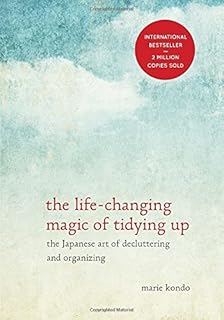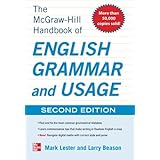intransitivity (Also intransitivities) : Related Words Words similar in meaning to intransitivity
- intransitiveness«
- intransitivity«
- intransitive«
- relation«
- grammar«
- syntax«
- prescriptive grammar«
- antitransitivity«
- morphology«
- grammatical relation«
- social consciousness«
- descriptive grammar«
- fiscal conservatism«
- term intransitivity«
- preference loop«
- lodge b«
- antitransitive relation«
- binary relation«
- loop«
- option«
- cycle«
- % favor«
- preference«
- stronger property«
- player b«
- transitivity«
- enemy«
- instance«
- a.«
- voter«
- scissors«
- voter balance«
- term intransitive«
- recognition relation«
- real combative relation«
- poddiakov«
- nontransitivity«
- lodge c.«
- lodge c«
- l. rudolph«
- intransitivity cycle«
- intransitive loop«
- economics intransitivity«
- broader equation«
- carrot«
- qualitative mathematics«
- preferred balance«
- intransitive dice«
- condorcet voting method«
- b defeat c«
- a defeat b«
- deer feed«
- candidate criterion«
- measure«
- valsiner«
- feed«
- unresolvable conflict«
- condorcet voting«
- candidate«
- probabilistic outcome«
- nontransitive dice«
- rabbit«
- voting paradox«
- relative preference«
- player c«
- preferences«
- unit«
- irrational behaviour«
- single vector«
- economic rationality«
- preference relation«
- grass«
- option a«
- wolf«
- transitive relation«
- cycles«
- assessment criterion«
- player a«
- cultural dynamic«
- consumer behaviour«
- system function«
- penney«
- individual animal«
- standard rule«
- many author«
- knockout tournament«
- weight«
- majority rule«
- equivalence relation«
- weighting«
- statement«
- defeat«
- drawn«
- human«
- pair«
- life form«
- anand«
- food chain«
- paper«
- rock«
- game theory«
- masonic lodge«
- country«
- mathematical model«
- freemasonry«
- abingdon«
- lodge«
- deer«
- probability«
- one«
- routledge«
- scenario«
- occurrence«
- game«
- economist«
- consensus«
- social science«
- philosopher«
- virtue«
- transformation«
- ny«
- violation«
- taste«
- notice«
- psychology«
- consumer«
- trend«
- value«
- strategy«
- argument«
- column«
- replacement«
- row«
- mathematics«
- sense«
- table«
- example«
- ed«
- element«
- question«
- condition«
- reading«
- property«
- set«
- research«
- information«
- system«
- person«
- author«
- well-formed«
- grammatical«
- grammatic«
- voice«
- transitiveness«
- transitive«
- syntactician«
- subordination«
- qualifying«
- passive«
- mood«
- modification«
- mode«
- modality«
- linguistics«
- limiting«
- inflexion«
- inflectional morphology«
- inflection«
- indicative«
- grammarian«
- generative grammar«
- derivational morphology«
- declarative«
- coreference«
- coordination«
- conjunction«
- concord«
- compound morphology«
- complementation«
- aspect«
- anaphoric relation«
- agreement«
- accidence«
- word structure«
- synchronic linguistics«
- syllable structure«
- subordinating conjunction«
- subjunctive mood«
- subjunctive«
- structuralism«
- structural linguistics«
- sound structure«
- sociolinguistics«
- sentence structure«
- semantics«
- restrictiveness«
- reflexivity«
- reflexiveness«
- qualifier«
- prescriptive linguistics«
- pragmatics«
- pluralization«
- pluralisation«
- phrase structure«
- person agreement«
- perfective aspect«
- perfective«
- passive voice«
- paradigm«
- optative mood«
- optative«
- number agreement«
- neurolinguistics«
- modifier«
- modal«
- linguistic scientist«
- linguistic geography«
- linguist«
- jussive mood«
- iterative aspect«
- iterative«
- interrogative mood«
- interrogative«
- indicative mood«
- inchoative aspect«
- inchoative«
- imperative mood«
- imperative form«
- imperative«
- historical linguistics«
- gender agreement«
- fact mood«
- etymology«
- durative aspect«
- durative«
- disjunctive conjunction«
- dialect geography«
- diachrony«
- diachronic linguistics«
- declension«
- declarative mood«
- copulative conjunction«
- coordinating conjunction«
- conjugation«
- computational linguistics«
- common mood«
- case agreement«
- apposition«
- adversative conjunction«
- active voice«
- active«
- Panini«
- Donatus«
- Aristarchus«
- Aelius Donatus«



